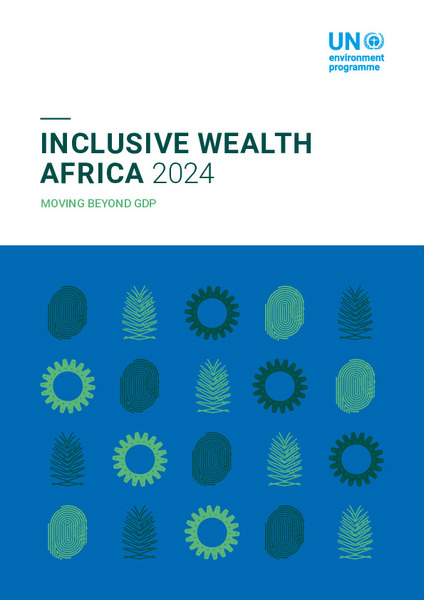Inclusive Wealth Africa 2024: Moving beyond GDP

Date
2023-10Author
United Nations Environment Programme
Citation Tool
Bibliographic Managers
RT Generic T1 Inclusive Wealth Africa 2024: Moving beyond GDP A1 United Nations Environment Programme YR 2023-10 LK https://wedocs.unep.org/20.500.11822/43651 PB United Nations Environment Programme AB TY - GEN T1 - Inclusive Wealth Africa 2024: Moving beyond GDP AU - United Nations Environment Programme Y1 - 2023-10 UR - https://wedocs.unep.org/20.500.11822/43651 PB - United Nations Environment Programme AB - @misc{20.500.11822_43651 author = {United Nations Environment Programme}, title = {Inclusive Wealth Africa 2024: Moving beyond GDP}, year = {2023-10}, abstract = {}, url = {https://wedocs.unep.org/20.500.11822/43651} } @misc{20.500.11822_43651 author = {United Nations Environment Programme}, title = {Inclusive Wealth Africa 2024: Moving beyond GDP}, year = {2023-10}, abstract = {}, url = {https://wedocs.unep.org/20.500.11822/43651} } TY - GEN T1 - Inclusive Wealth Africa 2024: Moving beyond GDP AU - United Nations Environment Programme UR - https://wedocs.unep.org/20.500.11822/43651 PB - United Nations Environment Programme AB -View/Open
Item Statistics
Display item statisticsMetadata
Show full item recordDescription
IWR Africa 2023 presents three key messages:
• The renewable natural capital of African countries is in historic decline and there is no room for its mismanagement. A significant proportion of the African population relies on renewable natural capital for their economic activities. Leaders and decision makers must implement policies to actively restore degraded land to ensure the continent’s sustainable development.
• African demographic growth is outpacing increases in Inclusive Wealth. To address this, policymakers must facilitate greater investment in the continent, particularly in education, health, produced capital and nature. Security issues should also be prioritised, as countries faced with these challenges lag in wealth investment.
• The African agricultural sector is marked by inequalities, particularly for women, arising from the sector’s low incomes, and is linked to the decreasing availability of nature and agricultural yields. Policies aimed at reducing discrimination against low-income female farmers will be key to addressing these challenges.
Collections
Document Viewer
To read more, scroll down below.

